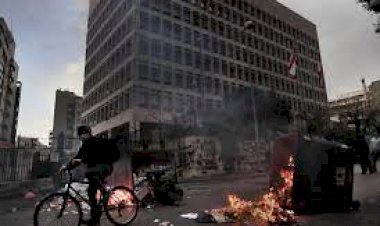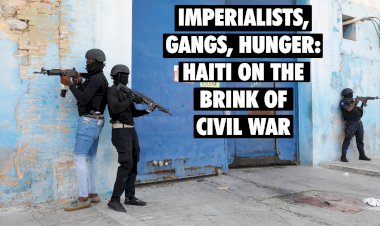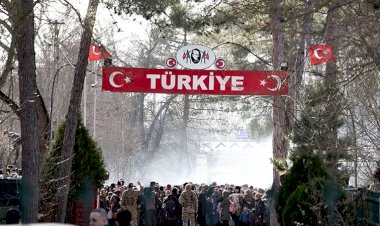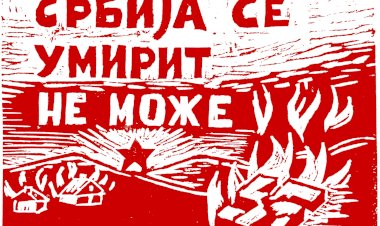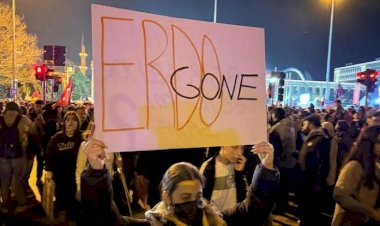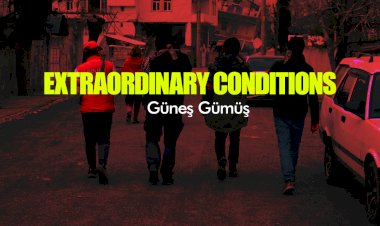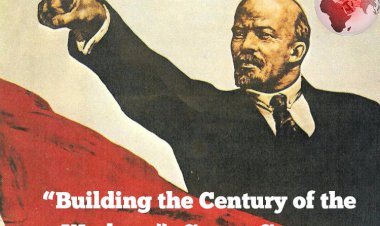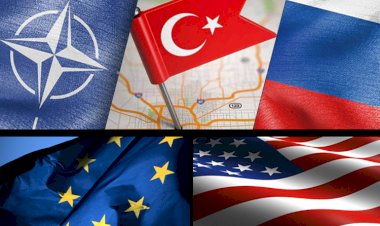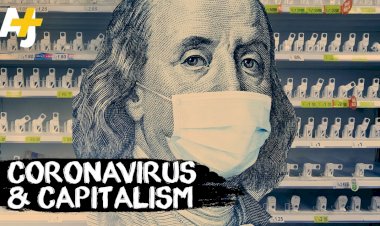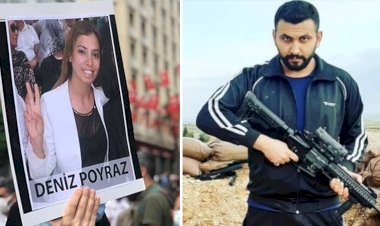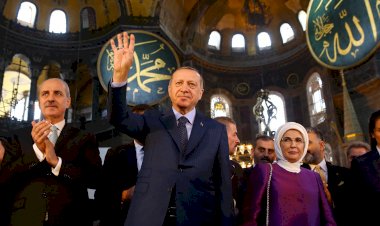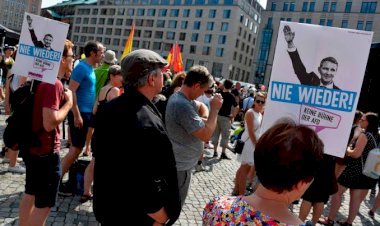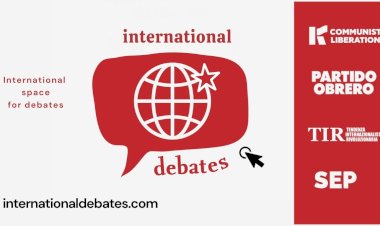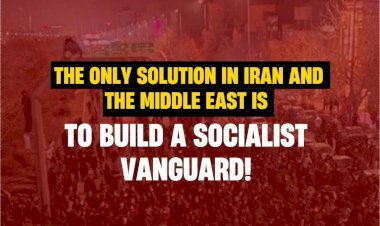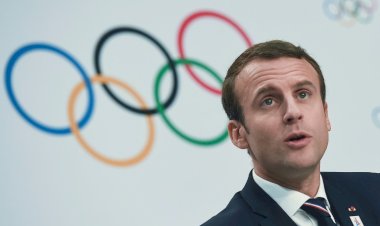Interview |Turkey: New wave of struggle is led by youth
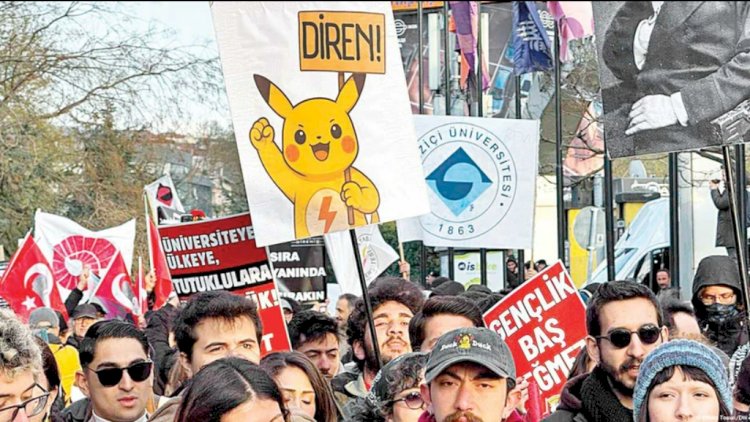
PRMI: Can you outline what the current situation is?
Derya: On March 19, after Erdoğan detained and imprisoned his most powerful rival, the Mayor of Istanbul, Ekrem İmamoğlu, and all the senior staff of the municipality, as well as İmamoğlu’s leadership team, a major youth uprising broke out.
The actions led by university students suddenly unleashed social energy, and a massive wave of protests began across the country against the increasingly authoritarian Erdoğan regime that has been in power for 23 years.
The judiciary, police and media under Erdoğan’s command had been preparing this completely fake and fictional “corruption” and “terror” operation for months. This is not the first time Erdoğan has seized a municipality. More than 50 municipalities (most of which have elected Kurdish mayors) have been dismissed on the grounds of links to terrorism. Many are under arrest. Prisons are full to the brim with opposition figures, and politicians and journalists are at the forefront of these.
Erdoğan lost all the most important major cities in the local elections of 31 March 2024. That means he has lost control over their vast resources and his political superiority has been damaged.
The country has been dragged into a deep economic crisis and the loss of decades of gains. Using the coup attempt in 2016 as an excuse, Erdoğan declared a presidential regime by amending the constitution, but he has now reached the legal term limit of two terms. He will not be able to run in the 2028 elections.
However, he is too ambitious not to leave office. He wants to be president for life and create a country without opposition. However, since the social and dynamic structure of the country are not suitable for this, he is constantly forced to be more oppressive.
Now that his popularity has been seriously eroded, he has come to a point where he cannot win elections with a policy based on social polarization as he has done until now. At that point, he put his plan to eliminate his opponents into action and carried out a judicial coup.
And in response to this, a new wave of struggle has begun by young people who have seen nothing but the authoritarian Erdoğan, his authoritarian regime that works for the extremely rich, and a lack of future throughout their lives.
PRMI: What is the level of repression, and is it likely to increase?
Derya: The masses came together in such large crowds that for the first time in perhaps 10 years, real demonstrations could be held in city squares. Despite their instructions, the police could not get tough.
However, after the demonstrations started to disperse, the few young people who remained in the area or the young people who came face to face with the police at the police barricades were faced with very brutal violence by the police.
There have been cases of harassment and serious beatings of women in custody.
In addition, during the week when the demonstrations were at their most intense, houses were raided every morning, and hundreds of people were detained so that people would be afraid and not go to the demonstrations the next day. Nearly a thousand people were detained, and around 300 students were imprisoned. Those who were released and those who were placed under house arrest are not included in this number.
However, this backfired. One of the main demands and campaign topics is the release of the arrested young people. Even as we conducted this interview, there was a significant change in this situation. As a result of great social pressure, detained students began to be released. This new information reflects the power and legitimacy of the struggle.
PRMI: Why are people so angry? What do they want?
Derya: They want justice in a very simple way. The judiciary is working completely as an apparatus that obeys Erdogan’s regime.
Women, workers, and dissidents who seek their rights are being ruthlessly suppressed. Even festivals at universities are banned under the pressure of reactionary Islamist sects. There is a huge censorship of art. Ordinary people are being arrested for their social media posts or their speeches in street interviews.
Nepotism is a huge corruption that disgusts the youth. Even if you study at university, you have no chance of getting a good job. The minimum wage is below the poverty line, and most of the country lives on a minimum wage. On the other hand, there is a huge enrichment.
The economic crisis has completely dragged the youth, the education budget, and university life to the bottom. It is no longer possible for you to live your youth as a young person. It is also difficult to seek your rights due to the oppression.
The young generations do not want to live in such a country. The biggest dream of the young people is to leave the country. Due to the dramatic changes and heavy oppression experienced in the country in the last 20 years, there is deep silence in the 30-40 age group, while the population in their 20s has reached the point of explosion.
In concrete terms, the demand is to hold early elections as soon as possible, to end injustices, and to have democratic rights and freedoms. However, these demands deeply contradict the nature of the system, and the country’s opposition leader, the CHP, does not understand this, nor does it have the power and capacity to force any serious change.
PRMI: Does Erdogan have a way out of the crisis?
Derya: Erdoğan was not expecting such a big explosion. He thought that there would be one or two controlled actions and that he would be able to execute his plans in a country whose reflexes have been dulled over years, used to bad news every day. But that did not happen.
He could not seize control of the municipality because of the opposition's actions. That was a step back. However, he managed to put his biggest rival in jail. This is bad news for Erdoğan.
To stay in power, he needs to amend the constitution again. Or he could hold early elections. Since he will not be able to win the election, there is no possibility of that happening.
However, he does not have the necessary alliances for a constitutional amendment. Therefore, it seems it will be difficult to get out of this crisis. One of the most likely scenarios is for political tensions to decrease by 2028 and for him to spread his moves over time.
Other targets he has in view are CHP’s Ankara Metropolitan Municipality Mayor Mansur Yavaş and the institutional structure of the CHP. He wants to eliminate these as well. However, it is clear that these deep contradictions will not bring about very normal processes.
If Erdogan thinks that he cannot establish a Central Asian-style dictatorship, he may seek a return to the parliamentary system and a compromise that will secure him, but for this, the streets need to be very tough, and he will first look for opportunities for new attacks.
PRMI: If Erdogan has been encouraged by Trump's approach, what is the EU doing?
Derya: With Trump returning to power, the contradiction between US and EU imperialism has deepened. The fact that NATO will not be supported by the US as much as before strengthens the alliance needs of EU imperialism. Turkey’s large land army and military assets are gaining importance for the EU in the Middle East.
Turkey’s biggest export point is the EU. Therefore, Erdoğan seems to have planned these moves by considering the general growth of authoritarianism in the world and international advantages. it offers him
PRMI: At the center of these protests is the CHP, after its candidate Ekrem İmamoğlu was arrested and barred from running in the next election. What is CHP, and how is it acting in this movement?
Derya: The CHP has advanced under the pressure of the masses. The masses created strong pressure by taking to the streets all over the country. However, the CHP is a classical bourgeois party with a weak organizational structure and no strong cadres.
The CHP’s weaknesses and loyalty to the system have a great impact on AKP’s increased capacity to oppress the country. CHP has always been a story of disappointment.
However, the regime in Turkey is currently experiencing an authoritarian breakdown, and the right to vote and be elected is being eliminated. The CHP’s approach of holding back the struggle changed due to mass pressure. It began to display a more energetic and aggressive opposition.
However, we cannot talk about a serious struggle plan. In the new situation, where the intense street protests are now behind us and Erdoğan has taken a few steps back, other moves are needed. The youth are maintaining their energy and want to go all the way.
PRMI: So if the CHP is being pushed to lead, is it the youth who are driving the protests? What role are the students playing? What is the consciousness of the students?
Derya: Yes, the youth are indeed the main force of the movement. They led the actions that broke the silent and tense wait on the first day of the protests and caused a psychological threshold to be crossed in the country.
They also took action every day for a week with very high energy. They organized boycotts of classes at universities, and they took to the streets. However, the students are in an extremely heterogeneous and unorganized situation. Both leftist youth, right-wing Kemalist youth, and the more nationalist ones are on the streets.
The socialist left has been playing critical roles since the first moment of action, making joint efforts to transform the local committees into a unified force. Although the socialists have limited powers in number, they can take on these critical roles and make decisive interventions. This means being most effective on university students and youth.
PRMI: Are there any right-wing currents participating?
Derya: There are people from the right wing, of course. This is a mass action. There are those who are leftist, Kemalist or far-right. What everyone has in common is anger at Erdoğan and the desire to get rid of him. This is quite understandable.
For many years, the mass of youth has been presented with an increasingly right-wing political line. In Turkey, too, an anti-immigrant nationalist movement has emerged in response to immigration. The right has also built support based on an anti-Kurdish campaign.
On the other hand, there are also young people who have left-wing tendencies. The issue of rights and freedoms is the most sensitive issue for young people.
PRMI: The students have been encouraging strikes. What role are unions such as DISK playing?
Derya: Unfortunately, it does not go further than expressing expectations at the level of discourse. DİSK has been nothing more than a bureaucratic shell for many years. It has not fought for even the most basic rights of workers.
We must openly say that as a bureaucratic apparatus, it is among the actors responsible for Erdoğan coming to this point. KESK, the confederation of the public employees in which there are significant numbers of cadres from the left, remained weak despite its efforts from the grassroots.
PRMI: It is just a month since Ocalan and the PKK announced their rejection of armed struggle. What role is PKK playing? Does this mean no Kurds are participating?
Derya: Yes, it was announced that a disarmament process had been initiated. Erdoğan wanted to be a historical leader who ensured the historical dissolution of the PKK movement through Abdullah Öcalan, who has been imprisoned since 1999.
He did this by simultaneously coordinating his efforts to help bring al Golani to power in Syria with the “terror-free Turkey” campaign.
The Kurdish national leadership and the hopeful people who are motivated to negotiate with Erdoğan are only asked to surrender. No concrete steps or democratic developments are promised for the oppressed Kurdish people. In any case, this is not possible in such an authoritarian environment, where Erdoğan has seized the Kurdish municipalities by appointing trustees.
At the same time, the real strategic move was for the national leadership of the PKK not to participate in the actions because they did not want to create difficulties for Erdoğan. The opposition was weakened by dividing the movement from the beginning.
PRMI: The other left parties – TiP -the Workers’ Party and the Communist Party of Turkey (TKP) both present themselves as radical, socialist parties. Have they proved themselves capable of leading the struggle?
Derya: The TIP is a SYRIZA-type mass party that broke away from the TKP. They were first welcomed with great sympathy by the left wing in the country, and they became popular in high politics by winning deputies from the lists of the DEM Party, the main party of the Kurdish national movement, but they have all the contradictions and weaknesses that come with being a mass party.
Their base is heterogeneous and they are weak in acting and doing effective work. They are very weak compared to their numerical strength and are actually extremely clumsy.
The TKP, on the other hand, is an extremely sectarian, classic Stalinist party. Although they have been participating in the actions from the very beginning, it has been seen that they do not have the capacity to guide the movement.
The fundamental weakness of the mass party is immediately revealed at these critical moments. They follow a nationalist, left-Kemalist line that strategically tries to hold the left base of the CHP. They always refrained from radicalism and conflict with the system. After their base joined the protests, they were forced to join the protests.
When the CHP, the real bearer of their secular republic idea, was on the streets, the TKP lost all of its characteristics.
PRMI: What is your party, the SEP, arguing?
Derya: We have had a significant impact on the movement from the very beginning of student protests to the organization of decisive actions. Now, SEP advocates for strengthening the boycott committees at universities, establishing local committees in neighbourhoods and workplaces, and building a non-bureaucratic organisational structure that sustains the movement through concrete campaigns.
The economic crisis is the country’s most fundamental issue. The movement needs to incorporate economic demands. We need solidarity networks and a campaign for their release of the arrested students.
While a general strike is not realistic at this point, it’s vital to appeal to the working class and embed demands that resonate with them against the union bureaucracy. Right now, consumer boycotts are the most widespread form of protest among the public. CHP is calling for boycotts of companies close to the AKP. On social media, calls for boycotting shopping are gaining traction.
People are discussing how Turkey lacks oil or other internal resources to finance authoritarianism, making it vulnerable to consumer boycotts. But we argue that producer strikes, direct action, neighborhood and workplace committees, and organised struggle—not consumer boycotts—will ultimately determine the outcome.
PRMI: How do you think this movement will play out?
Derya: The anger of the youth, the suffering of the working class, and the Kurdish people’s desire for freedom all point to the need for a revolutionary solution. Existing left organisations are bureaucratic, closely tied to the system and, unfortunately, have lost their class perspective and character.
As a result, they can’t go beyond defending the democratic space or develop more advanced strategies for struggle. Now that the masses are beginning to push beyond those limits, we must organise a new revolutionary generation out of this movement.
In parallel with this, the masses should be mobilized by campaigning for an urgent call for snap elections. A movement independent of any bourgeois forces should be created and the process should be intervened with revolutionary means.
Strategically, the main goal should be to strengthen the energy of the masses against the system. We must create a people and youth who can continue on their own path with their own power and strengthen the revolutionary line against the system.
We have left the peak of the movement behind. The energy is still far from fading. To prevent energy from evaporating and to create a permanent political resistance focus, new campaigns need to be carried out, especially among the youth, who are the vanguard of the movement. For this, a united front is needed.
The dynamism needs to continue, for this purpose, strong actions and campaigns have to be organized. Otherwise, there may be a normalization towards bourgeois politics, and with Erdoğan taking a step back, there may be a sense of relief, but he will not want to stop; he may attack at the first opportunity.



